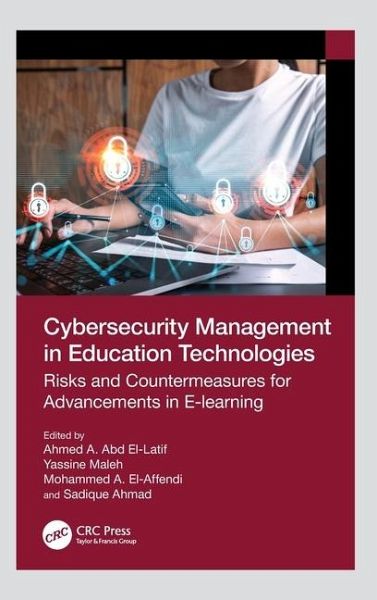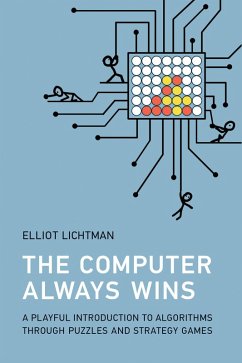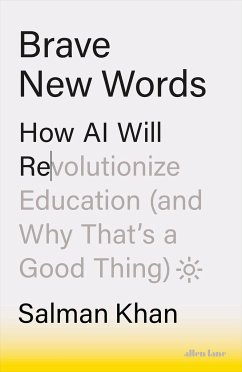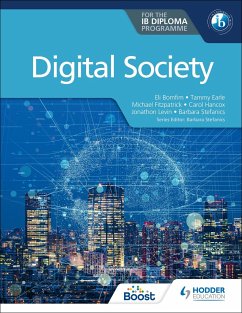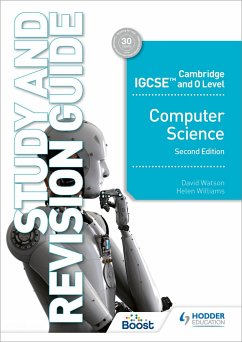Ahmed A. Abd El-Latif (SMIEEE, MACM) received a B.Sc. degree with honor rank in Mathematics and Computer Science in 2005 and an M.Sc. degree in Computer Science in 2010, all from Menoufia University, Egypt. He received his Ph. D. degree in Computer Science & Technology at the Harbin Institute of Technology (H.I.T), Harbin, P. R. China in 2013. He is an associate professor of Computer Science at Menoufia University, Egypt, and at EIAS Data Science Lab, College of Computer and Information Sciences, Prince Sultan University, Saudi Arabia. He is the author and co-author of more than 240+ papers, including refereed IEEE/ACM/Springer/Elsevier journals, conference papers, books and book chapters. He is involved in government and internationally funded R&D projects related to the widespread use of artificial intelligence for 5G/6G networks. He received many awards, State Encouragement Award in Engineering Sciences 2016, Arab Republic of Egypt; the Best Ph.D. student award from Harbin Institute of Technology, China 2013; the Young scientific award, from Menoufia University, Egypt 2014. He is a fellow at the Academy of Scientific Research and Technology, Egypt. His areas of interest are Cybersecurity, 5G/6G Wireless Networks, Post-Quantum Cryptography, Artificial Intelligence of Things, AI-Based Image Processing, Information Hiding, and Dynamical systems (Discrete-time models: Chaotic systems and Quantum Walks). He is the leader of the mega grant program "Research of network technologies with ultra-low latency and ultra-high density based on the widespread use of artificial intelligence for 6G networks". Dr. Abd El-Latif is the chair/co-chair of many Scopus/ EI conferences. He is the EIC of the International Journal of Information Security and Privacy and series editor of Advances in Cybersecurity Management (https://www.routledge.com). Also, academic editor/ associate editor for a set of indexed journals (Scopus journals' quartile ranking). Currently, He had many books, more than 10 books, in several publishers Springer, IET, CRC press, IGI-Global, Wiley, and IEEE. Yassine Maleh is an associate professor of cybersecurity and IT governance at Sultan Moulay Slimane University, Morocco. He is the founding chair of IEEE Consultant Network Morocco and the founding president of the African Research Center of Information Technology & Cybersecurity. He is a senior member of IEEE and a member of the International Association of Engineers IAENG and The Machine Intelligence Research Labs. Dr. Maleh has made contributions in the fields of information security and privacy, Internet of Things security, and wireless and constrained network security. His research interests include information security and privacy, the Internet of things, network security, information system, and IT governance. He has published over 100 papers (book chapters, international journals, and conferences/workshops), 17 edited books, and 3 authored books. He is the editor-in-chief of the International Journal of Information Security and Privacy, and the International Journal of Smart Security Technologies (IJSST). He serves as an associate editor for IEEE Access (2019 Impact Factor 4.098), the International Journal of Digital Crime and Forensics (IJDCF), and the International Journal of Information Security and Privacy (IJISP). He is a series editor of Advances in Cybersecurity Management, by CRC Taylor & Francis?-. He was also a guest editor of a special issue on Recent Advances on Cyber Security and Privacy for Cloud-of-Things of the International Journal of Digital Crime and Forensics (IJDCF), Volume 10, Issue 3, July¿September 2019. He has served and continues to serve on executive and technical program committees and as a reviewer of numerous international conferences and journals such as Elsevier Ad Hoc Networks, IEEE Network Magazine, IEEE Sensor Journal, ICT Express, and Springer Cluster Computing. He was the Publicity chair of BCCA 2019 and the General Chair of the MLBDACP 19 symposium and ICI2C¿21 Conference. He received Publons Top 1% reviewer award for the years 2018 and 2019. Mohammed A. ElAffendi is currently a Professor of computer science at the Department of Computer Science, Prince Sultan University, a Former Dean of CCIS, AIDE, the Rector, a Founder, and the Director of Data Science Laboratory (EIAS), a Founder and the Director of The Center of Excellence in CyberSecurity. His current research interests include data science, intelligent and cognitive systems, machine learning, and natural language processing. Sadique Ahmad achieved his Ph.D. degree (2019) from the Department of Computer Sciences and Technology, Beijing Institute of Technology China while a Master¿s degree (2015) from the Department of Computer Sciences from IMSciences University Peshawar Pakistan. He has achieved 39 research articles in peer-review journals and conferences including top journals such as Information Sciences, Science China Information Sciences, Computational Intelligence and Neuroscience, Physica-A, and IEEE ACCESS. His research interests include Artificial Intelligence and more specifically deep learning, image processing, satellite image object recognition, remote sensing image analysis, and video action detection. He has reviewed over 180 scientific research articles for various well-known journals, including Information Sciences, IEEE Access Journal, Knowledge-Based Systems, Education and Information Technologies, Information Technology and Management, ICEEST Conference, and ICONIP Conference. Dr. Sadique Ahmad has many collaborative scientific activities with international teams in different research projects in the following international universities. He is the CEO of KnowledgeShare IU Private Limited. Also, he is a Senior Assistant Professor at the Department of Computer Sciences, Bahria University Karachi Campus Pakistan (on leave). Currently, he is working as a Postdoc Fellow at Prince Sultan University, Riyadh KSA.
